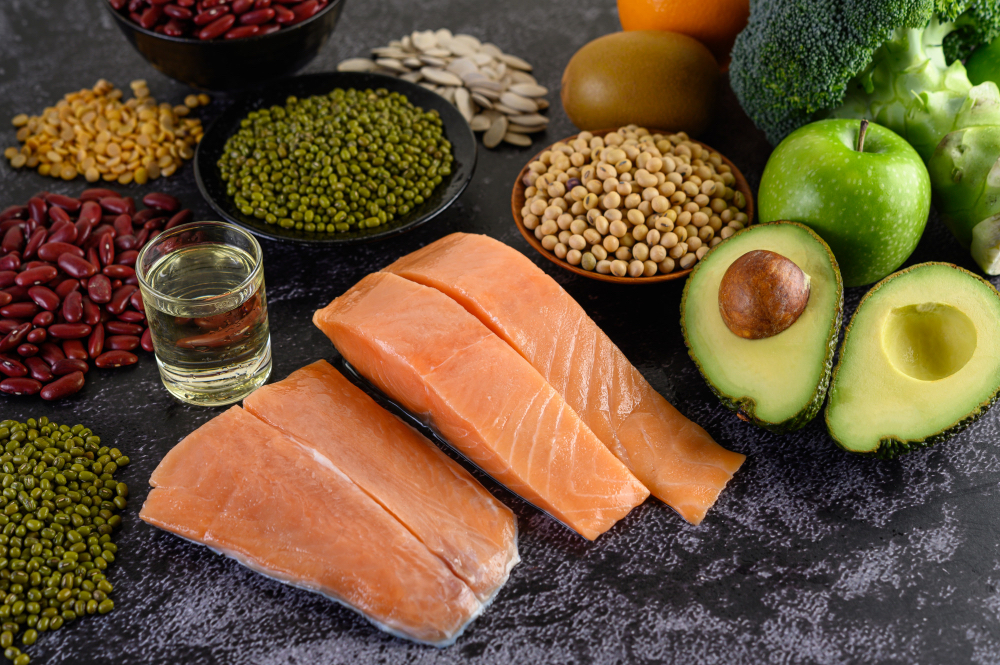
How to Boost Magnesium from Your Diet
Magnesium is a critical mineral essential for numerous bodily functions, yet many people fail to consume enough of it through their diet. Today we’ll take a look at some simple ways to boost magnesium intake from your diet.
Importance of Magnesium
As one of the most abundant minerals in the human body, magnesium is involved in over 300 biochemical reactions. These include muscle and nerve function, blood glucose control, and protein synthesis. It also plays a crucial role in bone structure and the synthesis of DNA and RNA.
Benefits of Magnesium
Enhances Muscle and Nerve Function: Magnesium is vital for muscle contraction and relaxation, helping to prevent cramps and spasms. It also regulates neurotransmitters, which are chemicals that facilitate communication in the brain and nervous system.
Improves Heart Health: Magnesium helps maintain a healthy heart rhythm and regulate blood pressure, playing a key role in cardiovascular health. Adequate magnesium levels can reduce the risk of heart disease and lower blood pressure.
Supports Bone Health: About 60% of the body’s magnesium is stored in bones, where it works with calcium to maintain bone density and strength. This is particularly important for older adults to prevent osteoporosis and maintain bone health.
Increases Energy Production: Magnesium is involved in producing ATP (adenosine triphosphate), the energy currency of cells. Without sufficient magnesium, the body cannot produce enough energy, leading to fatigue and weakness.
Supports Sleep Quality: Magnesium has a calming effect on the nervous system and helps regulate melatonin, the hormone controlling sleep-wake cycles. This can improve sleep quality and help the body relax.
Lessens Stress and Anxiety: Magnesium plays a significant role in regulating stress and mood by modulating the body’s stress-response system. Supplementing with magnesium can reduce symptoms of anxiety and promote a sense of calm.
Signs of Magnesium Deficiency
Magnesium deficiency can start with subtle symptoms such as muscle twitches, cramps, and fatigue. If untreated, it can lead to more severe symptoms like muscle weakness, numbness, and mental health issues such as anxiety and depression. Severe deficiency may result in abnormal heart rhythms, seizures, and imbalances in calcium and potassium levels. Chronic deficiency is linked to serious health issues like osteoporosis, high blood pressure, and heart disease. If you suspect a magnesium deficiency, consult a healthcare professional for diagnosis and treatment.
Boost Magnesium Intake from Your Diet with Magnesium-Rich Foods
Altering your diet can be an easy way to boost magnesium intake. Can you add some of the following foods into your meals?
Leafy Green Vegetables
- Spinach: Rich in magnesium, vitamins, and minerals.
- Kale: High in magnesium and other nutrients.
Nuts and Seeds
- Almonds: Provide a significant portion of daily magnesium needs.
- Cashews: Delicious and magnesium-rich.
- Pumpkin Seeds: Great snack or salad topping.
- Chia Seeds: Easy to add to smoothies, yogurt, or porridge.
Legumes
- Black Beans: Versatile and high in magnesium.
- Edamame: Healthy snack rich in magnesium.
- Lentils: Good source of magnesium and protein.
Whole Grains
- Quinoa: High in magnesium and a complete protein.
- Brown Rice: Provides a good amount of magnesium.
- Oats: Porridge is a great way to start the day with magnesium.
Fish
- Salmon: Rich in omega-3 fatty acids and magnesium.
- Mackerel: High in magnesium and heart-healthy.
Fruits
- Avocado: Nutrient-dense with healthy fats and magnesium.
- Bananas: Known for potassium, also provide magnesium.
- Figs: Sweet way to increase magnesium intake.
Dark Chocolate
- Dark Chocolate: Choose varieties with at least 70% cocoa for the best benefits.
Dairy Products
- Yogurt: Source of magnesium and probiotics.
- Milk: Provides magnesium along with calcium and vitamin D.
Other Vegetables
- Broccoli: High in magnesium, versatile in dishes.
- Squash: Both summer and winter varieties are good sources.
Tofu
- Tofu: Plant-based protein high in magnesium, good for vegetarians and vegans.
Tips for Maximising Magnesium Intake
- Combine Foods: Mix magnesium-rich foods in meals, such as adding pumpkin seeds to a spinach salad.
- Whole Foods: Opt for unprocessed foods, as they retain more nutrients.
- Balanced Diet: Ensure a variety of magnesium-rich foods to meet daily needs.
Magnesium Supplements
If dietary intake is insufficient, supplements may be necessary. Magnesium supplements come in forms like magnesium citrate, magnesium oxide, and magnesium glycinate. Consult with a healthcare provider to choose the right form and dosage.
- Dosage: Adult men need about 400-420 mg per day, and adult women need about 310-320 mg per day.
- Timing: Supplements can be taken any time, but evening intake may aid sleep.
- Absorption: Note that some forms are better absorbed with food.
Magnesium is a vital mineral supporting numerous bodily functions. If dietary sources are inadequate, supplements can help meet the body’s needs and provide numerous health benefits. Always consult a healthcare professional before starting any supplement regimen.


